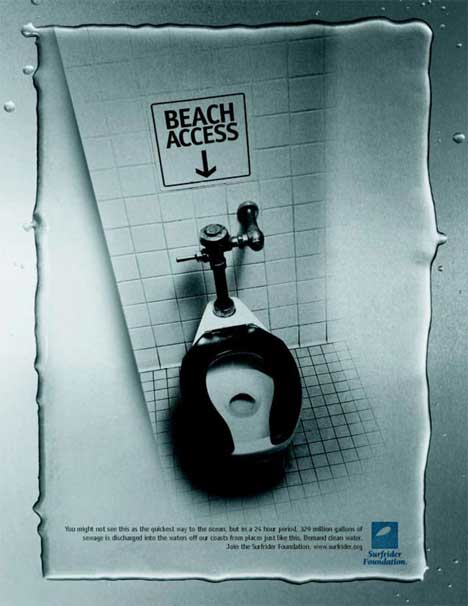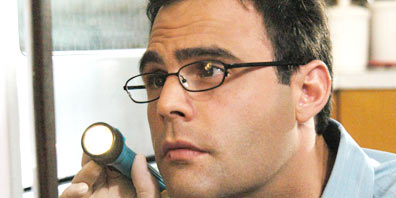He may ooze empathy and smooth, but Canadian politicians on the Standing Committee on Agriculture and Agri-Food’s Subcommittee on Food Safety beware: Michael McCain (below, not exactly as shown) really isn’t that into you.
 Sure he got dressed up for the committee appearance last night, prefaced it with a little foreplay at a luncheon for business types, and said I’m sorry, it was all me, but when a guy says that, he really means, it’s all you.
Sure he got dressed up for the committee appearance last night, prefaced it with a little foreplay at a luncheon for business types, and said I’m sorry, it was all me, but when a guy says that, he really means, it’s all you.
McCain just wants to get into your pants, or pants pockets, in the form of public tax dollars for inspections to ensure a future food safety façade so the profits at Maple Leaf Foods won’t be further inconvenienced by death and illness from deli meats.
McCain of Maple Leaf Foods has become the latest corporate type to ask for government help in the form of increased inspection. The dude from Kellogg’s did the same thing in the U.S., as did the growers of lettuce and spinach in California, and tomatoes in Florida. They all said the same thing: we can’t figure out how to provide a safe product while sucking in profits, so government, please, do it for us (that way, when there is an outbreak, we can at least say we met enhanced government standards). If anyone wants to know why government at best sets a minimal standard, read the testimony of Carole Swan, President of the Canadian Food Inspection Agency and Dr. Brian Evans, Executive Vice-President of CFIA.
All of this is tragically embarrassing.
And this ain’t rocket surgery.
Opposition MPs praised McCain for taking responsibility for the tragedy and questioned whether the government should do more to accept part of the blame.
No. Stop being taken in by the fabulously handsome McCain. The best food producers and processors will go far beyond government standards to provide a safe product; they make the profit; they should make it safe. They should brag about it.
McCain told business leaders earlier on Monday, perhaps after a lunch of liquor and delicious deli meats, that the food industry "has to raise its game" because it doesn’t take food safety seriously enough.
“This industry has to raise its game. It has to take food safety more seriously, it has to invest more in food safety, and it has to improve its record of delivering safe food to consumers."
Wow. Sixteen years after Jack-in-the-Box and McCain and his $5.5 billion a year company discovers food safety after killing 21 people. He also felt it necessary to lecture parliamentarians and others that ‘poke and sniff’ methods of inspection were outdated. That rhetoric is at least 20-30 years outdated.
You know (a listener said my overuse of ‘you know’ on a Baltimore phone-in show yesterday was appalling and that as a professor lecturing to ‘glasses’ I should know better; I told him I had a voice for print and he should watch his spelling) Amy and I need people to help out with baby Sorenne. I’m not sure we need a village, but babysitters and friends are handy a few hours a week so we can slog through some work. Or shower. Sorenne is 4-months-old.
I’m somewhat baffled, however, when the so-called leaders of multi-billion dollar corporations or producer groups ask for babysitters in the form of government inspectors. Are your managers 4-month-olds that need someone to play ga-ga with? Help to get in their walker?
.jpg) Canadian parliamentarians, stop being swooned by this guy. NDP MP Malcolm Allen said, “The only way you can get trust back with the public is through third-party verification.”
Canadian parliamentarians, stop being swooned by this guy. NDP MP Malcolm Allen said, “The only way you can get trust back with the public is through third-party verification.”
Apparently the star-struck Mr. Allen, thinking he was asking a tough question, showed himself as the star-struck girlfriend, who knows nothing about food safety, like the shitfest of third-party (non)verification at the Peanut Corporation of America plant which led to nine dead and 600 sick from Salmonella.
Here’s what is appalling about all this: no one, or at least me, expects anything but the bare minimum from government. The CFIA types can say they’re sorry all day, they’ll still have jobs and still go off for six-months of French lessons to move up in the Canadian government bureaucracy.
Michael McCain (above, exactly as shown), who runs that $5.5. billion a year company manufacturing products identified for decades at high risk of listeria, could stick with, yeah, we screwed up, we should have learned from all these past listeria outbreaks, we should have paid attention to the positive test results sitting in our filing cabinets, we’re sorry.
As Steve Martin once said, ‘But Noooooooooooo.’
Instead, McCain makes a big deal out of hiring a food safety dude after the fact, and lectures the rest of the industry and the country on what should be done; instead it’s like dating the worst kind of reformed smoker or born-again addict preaching to everyone else: forget minimal government regulations, forget the preaching, sell safe food. Listeria didn’t just come along 10, 20, 30 years ago, or yesterday, as you would have Canadians believe.
McCain, take care of your own shop, the one that happily makes money. Then maybe we can talk about another date.
Until then, I’m just not that into you.
 This article describes a study of inspections that were conducted by inspectors from the Michigan Department of Agriculture and Rural Development Food and Dairy Division at small-scale processing facilities. Interactions between inspectors and small processors were explored through a qualitative, ethnographic approach using interviews and field observations. Inspectors emphasized the importance of interpersonal skills such as communication, patience, empathy, respect, and consideration in conducting inspections.
This article describes a study of inspections that were conducted by inspectors from the Michigan Department of Agriculture and Rural Development Food and Dairy Division at small-scale processing facilities. Interactions between inspectors and small processors were explored through a qualitative, ethnographic approach using interviews and field observations. Inspectors emphasized the importance of interpersonal skills such as communication, patience, empathy, respect, and consideration in conducting inspections.


 The Department of Health told
The Department of Health told DCF employees already inspect day-care facilities for safety issues. Sheldon said the Legislature was trying to consolidate inspections to prevent multiple state agencies from visiting the same facilities to inspect different standards.
DCF employees already inspect day-care facilities for safety issues. Sheldon said the Legislature was trying to consolidate inspections to prevent multiple state agencies from visiting the same facilities to inspect different standards. Those investigations with people scattered across states, like the current E. coli O145 outbreak that has sickened over 50, are a testament to the skill, dedication of training of public and environmental health types.
Those investigations with people scattered across states, like the current E. coli O145 outbreak that has sickened over 50, are a testament to the skill, dedication of training of public and environmental health types.
.jpg) Canadian parliamentarians, stop being swooned by this guy.
Canadian parliamentarians, stop being swooned by this guy. .jpg) Do more inspectors make food safer?
Do more inspectors make food safer? Among his 24 recommendations, Pennington said all checks should be unannounced, unless there were exceptional circumstances.
Among his 24 recommendations, Pennington said all checks should be unannounced, unless there were exceptional circumstances.(1).png) President Clinton had a similar group 13 years ago.
President Clinton had a similar group 13 years ago. The five most dangerous states for eating out, according to this analysis, were Florida, California, Minnesota, Ohio, and New York. Florida and California were cited as having the most dangerous restaurants for the third year in a row. This is wrong, wrong, wrong.
The five most dangerous states for eating out, according to this analysis, were Florida, California, Minnesota, Ohio, and New York. Florida and California were cited as having the most dangerous restaurants for the third year in a row. This is wrong, wrong, wrong.
 Restaurants and food venues at the California Angels baseball stadium have been cited by county health officials 118 times in the last 2 1⁄2 years for "vermin violations."
Restaurants and food venues at the California Angels baseball stadium have been cited by county health officials 118 times in the last 2 1⁄2 years for "vermin violations."